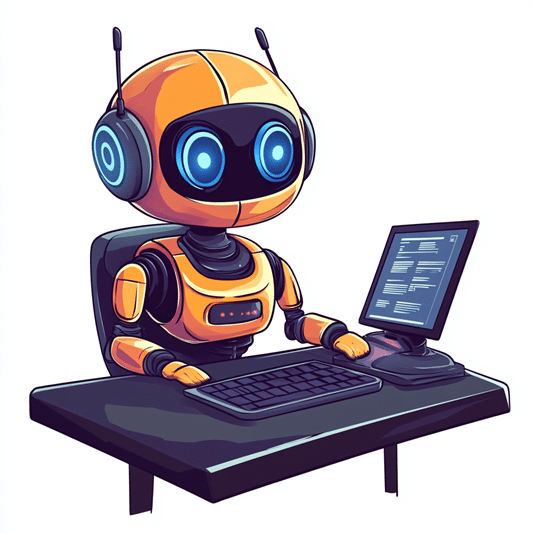In today’s fast-paced digital landscape, customer expectations are evolving rapidly. Instant responses, 24/7 availability, and seamless user experiences are now the standard. To meet these demands, companies are increasingly turning to AI-powered chatbots. These intelligent solutions are reshaping how businesses interact with customers, driving efficiency, and elevating service quality. This article explores five transformative ways AI chatbots are revolutionizing customer support and why they have become essential in modern business strategies.
Main challenges of modern customer support
Modern customer support faces a range of challenges that are reshaping the expectations and operational structures of businesses. One of the primary challenges is rising customer expectations. In the digital age, consumers expect instant responses, seamless interactions, and personalized experiences. They demand real-time solutions across multiple channels—web, mobile apps, social media, and more. Failure to meet these expectations can result in frustration and potential loss of business, highlighting the need for technologies that can keep pace with these demands.
Additionally, the growth of omnichannel communication has complicated customer service management. Customers now interact with brands through various touchpoints, expecting continuity and coherence regardless of the platform. Ensuring consistent service across email, chat, phone, and social media is a logistical challenge that requires seamless data integration and real-time synchronization.
The third major challenge is scaling support without inflating costs. As businesses grow, so does the volume of customer inquiries. Traditionally, scaling meant hiring more agents, which drives up costs. In contrast, technologies like AI-powered chatbots allow companies to scale support efficiently, handling thousands of inquiries simultaneously without a proportional rise in operational expenses.
Another significant issue is language barriers and global accessibility. Companies with international customer bases struggle to provide support in multiple languages, often requiring costly multilingual support teams. AI-driven chatbots are increasingly being used to bridge this gap, offering real-time multilingual support powered by advanced natural language processing.
Finally, there is the persistent challenge of data security and privacy. With increasing concerns over data breaches and privacy regulations, maintaining secure customer interactions is crucial. Businesses must ensure that every touchpoint—whether handled by human agents or AI—meets stringent security standards to protect user information.
These challenges underscore the need for innovative solutions that not only enhance customer support but also address the complexities of modern business environments.
AI-powered customer support: benefits and improvements
- Instant 24/7 availability
One of the most impactful benefits of AI-powered chatbots is their ability to provide instant, around-the-clock support. Unlike human agents, chatbots are not limited by working hours or time zones. They can address customer inquiries at any time, enhancing user experience and reducing wait times significantly. This constant availability not only boosts customer satisfaction but also ensures that critical issues are resolved promptly, maintaining brand trust and reliability.
Global e-commerce platforms and financial institutions are prime examples of leveraging chatbot technology for uninterrupted service. By handling routine questions like order tracking, payment processing, or account inquiries, AI chatbots free up human agents to focus on more complex issues, optimizing both efficiency and customer satisfaction.
- Enhanced personalization through data analysis
AI-powered chatbots are capable of collecting and analyzing vast amounts of customer data. This capability allows them to deliver highly personalized experiences, tailoring responses based on user history, preferences, and real-time interactions. Whether it’s recommending products, providing tailored solutions, or even predicting customer needs, chatbots utilize machine learning algorithms to continuously improve their responses.
With every interaction, these intelligent systems become more adept at understanding individual customer behavior, making future interactions even smoother and more relevant. This level of personalization not only boosts engagement but also enhances customer loyalty.
- Cost-efficiency and scalability
For many businesses, scaling customer support operations is both costly and resource-intensive. AI-powered chatbots offer a scalable solution that minimizes costs without compromising service quality. Once deployed, a chatbot can manage thousands of customer interactions simultaneously, eliminating the need for extensive hiring during peak periods.
Moreover, the operational costs associated with chatbot maintenance are significantly lower compared to human-led support. This makes chatbots an attractive option for businesses looking to optimize budgets while expanding service capabilities.
- Streamlined issue resolution
AI chatbots excel at handling routine inquiries and troubleshooting common issues, providing step-by-step guidance and instant resolutions. In many cases, customers can resolve their problems without needing to escalate to human agents, reducing wait times and enhancing the overall service experience.
For more complex cases, chatbots can collect preliminary information and route the issue to the appropriate department with complete context, streamlining the handoff process. This not only improves resolution speed but also reduces the burden on live agents, enabling them to focus on high-value interactions.
- Multilingual support and global reach
Global businesses often face the challenge of providing support across multiple languages. AI chatbots address this need effectively, offering multilingual support that bridges communication gaps effortlessly. Advanced natural language processing (NLP) capabilities enable chatbots to understand and respond accurately in various languages, broadening their reach and enhancing user experience across different regions.
This capacity for multilingual support allows businesses to expand their global footprint without the complexities of managing large, diverse support teams.
Conclusion
The rise of AI-powered chatbots marks a turning point in the evolution of customer support. These intelligent systems are reshaping traditional service models, setting new standards for availability, personalization, and efficiency. Businesses that embrace chatbot technology are not just improving customer experiences; they are unlocking a number of great benefits:
- potential for scalability
- new cost savings opportunities
- Next-level features that used to be out of reach for human-only support teams
Beyond mere efficiency, AI-powered chatbots enhance the customer journey through tailored interactions and multilingual capabilities, enabling brands to serve a global audience seamlessly. This transformation is not just about reducing wait times; it’s about creating a more responsive, inclusive, and reliable support structure that aligns with the expectations of modern consumers.
As AI continues to advance, the potential for even more sophisticated chatbot functionalities becomes a tangible reality. Predictive analytics, emotion detection, and seamless handoffs to human agents are just glimpses of what the next generation of chatbots will offer. For companies willing to invest in this technology by cooperating with reliable technology partners such as Trinetix AI Development Company, the rewards are clear: stronger customer relationships, streamlined operations, and a competitive edge in an increasingly digital marketplace.
The path forward is clear—AI-powered chatbots are not merely a tool for optimization; they are a strategic asset that redefines customer service and positions businesses for sustained growth in the digital era.
AI-powered chatbots are not just a trend; they represent a significant shift in customer service dynamics. From ensuring 24/7 availability to enhancing personalization and cost-efficiency, these intelligent solutions are redefining how brands interact with their customers. As chatbot technology continues to evolve, its role in revolutionizing customer support will only deepen, offering even greater efficiency, scalability, and global reach.



